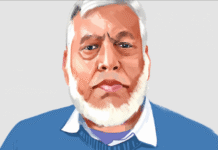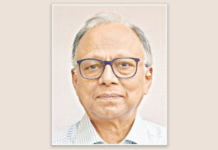David Rohde
The partisan political theater, of course, was top-notch. Rand Paul’s declaration that he would have fired Hillary Clinton; her angry rebuttal of Ron Johnson’s insistence that the administration misled the American people about the Benghazi attack; John McCain’s continued – and legitimate – outrage at the slapdash security the State Department provided for its employees.
Amid the posturing, though, ran a separate question: what strategy, if any, does the United States have to counter the militant groups running rampant across North and West Africa? Clinton herself summed up the sad state of play during her tense exchange with McCain.
“We’ve got to get our act together,” she said.
While the attention of American politicians has rightly focused on the safety of American diplomats, the key players in battling Africa’s jihadists are local leaders and security forces. The record of the United States and its allies in training security forces in Iraq and Afghanistan is checkered at best. Africa will be yet another test.
Ten days after French forces intervened in Mali, a familiar pattern is emerging in the West African nation. In a telephone interview, Peter Tinti, an American journalist, described how residents of the town of Diabaly were “ecstatic” after French air strikes drove jihadists from the town.
“They wanted to talk about the idolatry of French air power,” Tinti told me, referring to the accuracy of strikes that destroyed Islamist trucks without leveling nearby houses. “As far as I know, there has not been an official civilian casualty.”
Such elation often follows humanitarian-driven interventions. Diplomats and aid workers speak of a post-intervention golden hour when goodwill and international influence is at its highest. Bosnian Muslims expressed joy during the first waves of NATO airstrikes against Serb forces in 1995. Afghans expressed awe at the American airstrikes that helped topple the Taliban in 2001. And Iraqi Shiites cheered when U.S. forces decimated Saddam Hussein’s Republican Guard in 2003. The problem, though, is what comes next?
In her final answer of the day on Wednesday, Clinton summed up the dilemma herself.
“Nobody can match us in military assets and prowess,” she said, “but a lot of the challenges we face are not immediately – or sustainably – solved by military action alone.”
Tinti, who served as a Peace Corps volunteer in northern Mali before becoming a journalist, went on to describe a political landscape in Mali reminiscent of Afghanistan. Jihadists are unpopular but the government is weak. Many members of Mali’s corrupt local political class have lost the confidence of the population. The Malian army and security forces are seen as inept. Demands from Tuaregs and other ethnic groups for autonomy have gone unaddressed for years. And the narcotic trade – cocaine to Europe – exacerbates all those dynamics.
In her testimony, Clinton held up Somalia and Colombia as examples for Mali. She argued that U.S. funding of an African Union Mission in Somalia, or AMISOM, has slowly succeeded in driving back al-Shabaab and other Islamist forces. In Colombia, the government has driven back FARC rebels and narco-traffickers.
There have been setbacks and the efforts in both countries are imperfect. But local security forces trained and funded by the international community slowly gained ground in painstaking, years-long efforts.
“What we have to do is recognize that we’re in for a long term struggle here,” Clinton said at the hearing. “And that means we’ve got to pay attention to places that historically we have not chosen to or had to.”
During their heated exchange, McCain criticized Clinton and the Obama administration for not doing enough to train Libya’s security forces. Clinton retorted that House Republicans had put a hold on the funding the administration requested to train Libyan forces.
“If this is a priority and we are serious about trying to help this government stand up security forces,” she said, “then we have to work together.”
Clinton is right. And so is McCain. Congressional politicking hinders the State Department. And the State Department executed terribly in Benghazi. But Clinton, who I have criticized in the past, is right about the threat.
“We are in a new reality,” she said, referring to the change sweeping across the Middle East. “We are trying to makes sense of events that nobody had predicted but that we’re going to have to live with.”
Clinton called for the U.S. to show “humility” abroad and stop making national security issues “political footballs” at home. She said a Cold War style bipartisan agreement should be reached to launch a long-term American effort to strengthen local security forces and promote democracy across Africa and the post-Arab Spring Middle East.
“Let’s be smart and learn from what we’ve done in the past,” she said, referring to Somalia and Colombia. “Put forth a policy that wouldn’t go lurching from administration to administration but would be a steady one.”
“We have more assets than anyone in the world,” she added, “but I think we’ve gotten a little bit off track in trying to figure out how best to utilize them.”
A “little bit off track” is a euphemism for partisanship endangering our national security. Last week’s raid on a vast oil facility in Algeria is a taste of things to come in North and West Africa. If we don’t get our act together, expect more Benghazis.
Source: bdnews24 opinions









